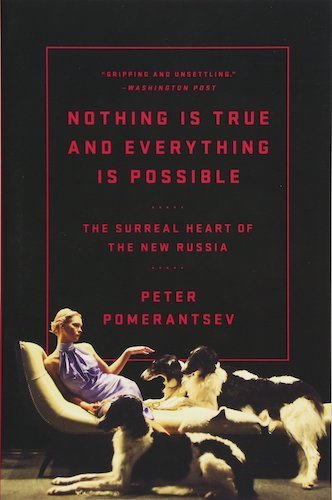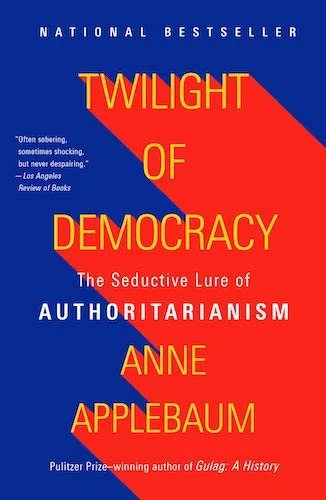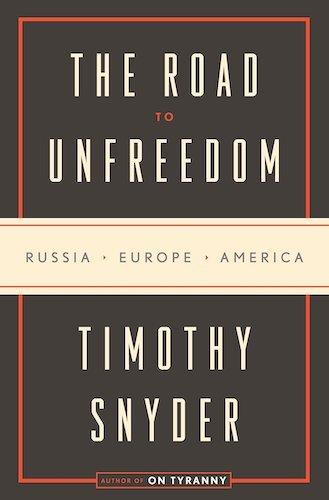On Russia
In early January, prompted by rumblings of a possible (further) attack on Ukraine by Russia, I did what I do: I sought out books.
Like many of us, I’d been vaguely aware of the Russian annexation of Crimea in 2014. And of course I knew something of the Kremlin’s cyberwarfare and disinformation campaigns a year or two later. But in this post-Soviet Union, post-Cold War era, I didn’t understand what motivates Putin. I didn’t understand what this former KGB agent wanted, besides chaos. What kind of country does he want to lead? What kind of world does he want to shape? And, not least, what do the Russian people think of these grand ambitions?
By far the strangest book I’ve read in search of answers is Nothing Is True and Everything Is Possible: The Surreal Heart of the New Russia. It’s a moderately interesting memoir with a pitch-perfect title in which Peter Pomerantsev, a British TV producer of Russian extraction, follows the money to Moscow, helping to pioneer reality television there. Along the way, he introduces us to oligarchs and the nouveau riche, mafiosos and supermodels, as well as more than a few brazen, cynical propagandists. Meeting them in these pages is a dizzying, not altogether pleasant experience. But in terms of understanding that “surreal heart” of Russia, it’s an eye-opener.
The Road to Unfreedom: Russia, Europe, America by Yale historian Timothy Snyder tackles head-on the questions many of us have been asking about Russia’s intentions in Ukraine. It’s a weighty, salient book. While Snyder covers a lot of historical ground—including before, during, and after both world wars—the six chapters here are framed by key conflicts and developments representing each year between 2011 and 2016. Long story short: Russia’s meddling in United States elections was not an aberration; neither are the aggressions of recent days. There are identifiable patterns. There’s a method to the madness.
One last book that’s worth mentioning is Twilight of Democracy: The Seductive Lure of Authoritarianism by Anne Applebaum. While not strictly about the topic at hand, it does offer important insight into the shifting political loyalties underway in Russia, eastern and western Europe, and here in the United States. The context Applebaum knows best is Poland; it’s from there that she assesses what’s happening on the world stage. As vantage points go, it’s a helpful one. Even when the conclusions are disconcerting.
Reading these books has not made me an expert on Russia, Ukraine, or anything else. They won’t make you one either. But they offer clues. They give color to a region that, in my mind’s eye, I’ve unfortunately tended to see as gray. They remind us that wars and rumors of war do not happen in a vacuum. They happen in history, for all kinds of good and bad reasons, and they destroy people’s lives. Lord have mercy on us all. God, give wisdom to the leaders of the world. Grant us your peace.



